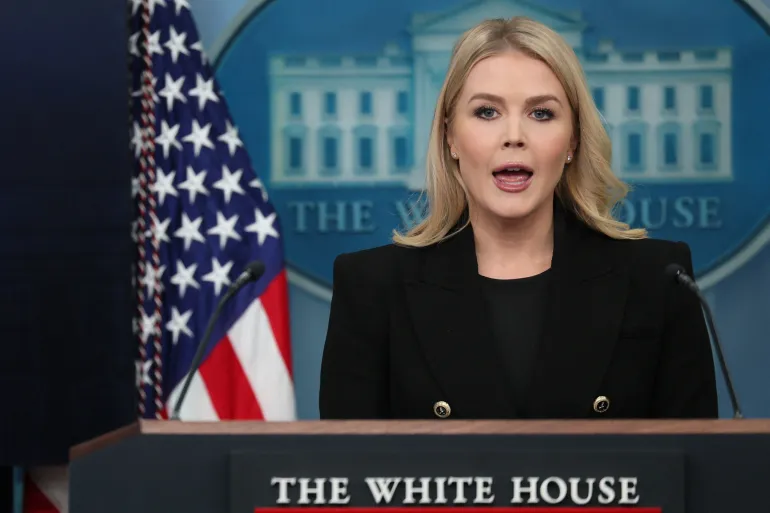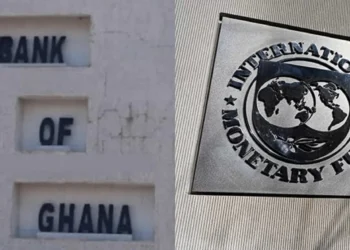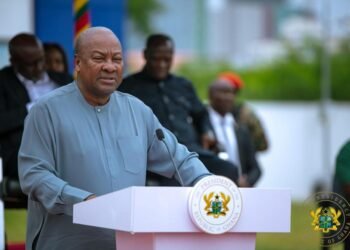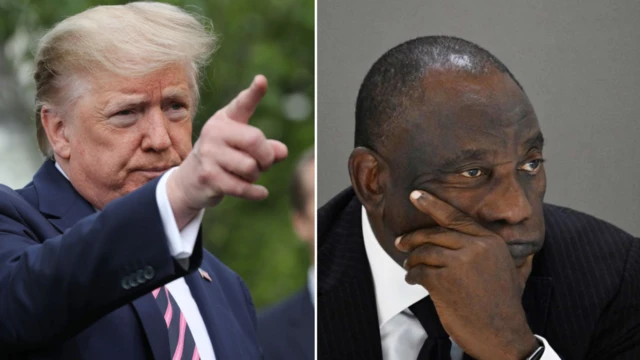It is said that politics makes strange bedfellows, and in Riyadh last week, that idiom came to life in a meeting few could have predicted even a year ago.
In a seismic shift in US foreign policy, U.S. President Donald Trump announced the removal of longstanding sanctions on Syria—a decision unveiled during a high-profile appearance at the Saudi-US Investment Forum.
And if the speech was seismic, the optics that followed were historic: Trump sitting face-to-face with Syrian President, Ahmed al-Sharaa, marking the first of such meeting in 25 years.

To help unpack the implications, The Vaultz News spoke with Dr. Victor Doke, a seasoned Analyst at the Kofi Annan International Peacekeeping Training Centre (KAIPTC), who assessed what this moment could mean for Syria, US strategy, and the wider regional balance of power.
Dr. Doke opined that for Trump to announce the lifting of sanctions means that he has recognized the government of Syria and he is willing to support the country’s reconstruction. “Of course, this comes with agreements beneficial to the US,” he added.
He explained that the decision could reshape the region, catapulting Syria back onto the diplomatic and economic map.
He added that Syria will now be able to establish bilateral relations with other countries, get international support and assistance in rebuilding, as well as grow its economy.
Also, he stated that Trump and al-Sharaa’s meeting signals US’ willingness to be partner with Syria in the fight against terrorism and violent extremism
“So I think this signals to the other countries who may have in doubt, that once a US President has expressed that there is a reason to lift the sanctions and have the meeting with the Syrian President that Syria is ready for business again.”
Dr. Victor Doke
White House Press Secretary, Karoline Leavitt disclosed in a social media post that the lifting of sanctions comes with five specific U.S. expectations for Damascus: Sign onto the Abraham Accords with Israel; Tell all foreign terrorists to leave Syria; Deport Palestinian terrorists; Help the United States to prevent the resurgence of ISIS; Assume responsibility for ISIS detention centers in northeast Syria.

Asked whether these conditions are realistic, Dr. Doke remarked that conditions such as this takes the two parties to agree.
He was candid about what may be the biggest stumbling block: Syria’s relationship with Israel.
He said that if Syria finds it difficult to sign the Abraham Accords, it could renegotiate the terms but that will depend on whether the US sees enough goodwill elsewhere.
Doke suggested the Syrian administration might try to reach a compromise—eschewing a formal agreement with Israel while agreeing to non-hostile relations. Whether Trump would accept that, however, remains uncertain.
“I don’t think the Syrian government will be willing to sign onto the Abraham Accords. It depends on the new political direction that the President wants to take. And trust me, he is not the only person who will take that decision. The people of Syria also have a say.
“This will be the most challenging aspect of the agreement that has been proposed to the Syrian government. And it’s going to be a very tough problem, and I see a very long implication to that… In other words, will he [Trump] use coercive power before the Syrian government would sign on to the Abraham accords with Israel? We are waiting to see what’s going to happen, but there will be challenges in this aspect.”
Dr. Victor Doke
A Long Road Ahead
On the question of what the future holds for Syria, Dr. Doke was cautiously optimistic.
“Clearly, when it comes to the post conflict era, it’s a gradual process. We are talking about putting in place structural reforms which is going to take a long time.”
Dr. Victor Doke
In the short term, Dr. Doke sees a focus on repairing state institutions and laying the groundwork for governance. Medium to long term, the focus must shift to attracting investment, creating jobs, and establishing robust trade ties.
He stressed that the effects of the sanctions removal will not be seen immediately, saying that the sanctions will just be like relieving Syria and giving it the opportunity to establish links again. “So if the country has now been given the opportunity, they now have to renegotiate previous deals, look out for more partners and establish trade agreements,” he added.
He estimated that it will take about five years before any tangible effect of the sanctions removal will be seen. “The future for Syria will be much better if everything should be well,” he said.
For Syria, Trump’s decision opens a long-shut door to international legitimacy, reconstruction, and reintegration into the global economy.
Whether this new chapter becomes a turning point for Syria or just another entry in a list of failed diplomatic overtures will depend on how well both sides navigate the situation.
READ ALSO: Inequalities in Ghana’s Public Sector Remuneration Inducing Economic Injustice




















